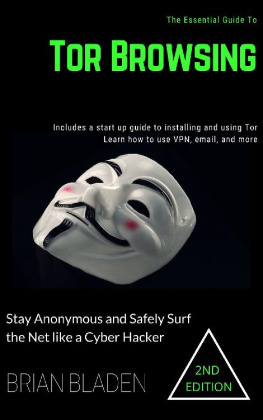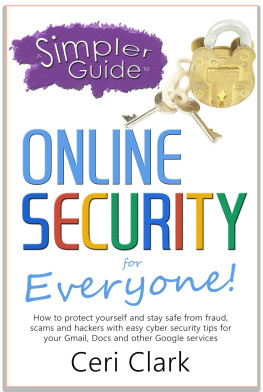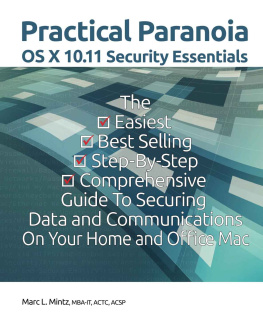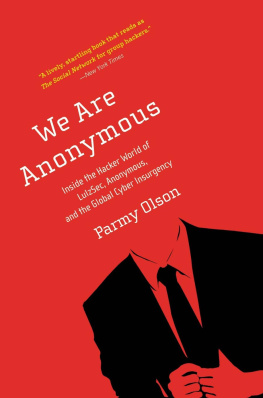Tor Browsing
Stay Anonymous and Safely Surf the Net like a Cyber Hacker
All Rights Reserved 2020 Zepp Media
Disclaimer
This eBook was written for the purpose of teaching people how to stay secure and anonymous in the digital world. It is a book written for people who are in difficult situations such as whistle-blowing journalists, activists, somebody being hunted or persecuted by their government, investigators and researchers, or a person who is threatened by someone else. The book details techniques on staying digitally private and some of these techniques are the same ones criminals may use as well. We do not condone the actions of criminals and this book is not intended for criminal activity. How you use the information in this book is your choice and we cannot be held accountable for your actions.
Table of Contents
Introduction
So, what is Tor? Tor is a browser that provides anonymity by hiding your identity as you surf the web. You can browse the web, share content and engage with online users whilst remaining anonymous. Tor is an acronym for The Onion Router and was created in the US during the mid-Nineties. Tor will encrypt any data sent from your computer so that nobody can see where you are from or who you are. Tor takes its Onion name from the fact encryption is built from layers. Data sent from your computer is sent through a series of nodes or relays (other peoples computers) run by millions of volunteers throughout the world, building up the layers of encryption. Hence, like building the layers of an onion. Tor will hide your IP address and give you a new one every time you send or receive data. It is nearly impossible for someone to know where the data originated.

The easiest way to use Tor is by using its dedicated browser (you can download it from www.torproject.org) which is compatible with Windows, MacOS and Linux (choose the right download). The Tor browser has been designed and based on the Firefox browser but disables many of the plugins that can compromise privacy and security whilst surfing the net. Your anti-virus software and firewall may need to be re-configured in order to be able to access the Tor network. You can also use the Tor app for an Android phone, the app is called Orbit and there is also an operating system called Tails pre-configured for Tor.
Tor is a popular browser used by police, military and government organisations across the globe. You have medical researchers, human-rights campaigners, whistle-blowers, journalists and even terrorists using the browser. All have the common requirement and that is guarding their privacy, communication and information from prying eyes. By using Tor you can choose who you associate with. There are millions of Tor users; Facebooks Tor-only version of the site is proving very popular with more than a million visitors every month.
Tor is completely legal software and was not intended for illegal activity. It is the users of Tor that can abuse its power to carry out illegal trading and crime. The same could be said of any web service the users commit the actions. There are way more legitimate users than there are criminals and there is nothing wrong in guarding your privacy. You dont have to be too concerned with safety as Tor does not give out a directory of dark web sites. You wont stumble on illegal or disturbing content unless you have the known web address with the .onion domain.
Tor is designed to protect the personal privacy of a user by giving them the freedom to conduct confidential communication and avoid monitoring from traffic analysis and network surveillance. It was not designed with criminal activity in mind.
The History of Tor
The Onion Router (TOR) was developed in the mid-Nineties by the United States Naval Laboratory. Employees Paul Syverson, Michael G. Reed and David Goldschlag decided to develop software with the purpose of protecting U.S. intelligence communications through the net. The router was then further developed by an agency called DARPA in 1997.
TOR was patented in 2000 by the US Patent and Trademark Office after several years of research and testing.
Paul Syverson, along with Roger Dingledine and Nick Matthewson, developed the alpha version of Tor, calling it the TOR project in September 2002 and was released publicly later that year. In 2006, Dingledine and Mathewson, along with five others, founded The Tor Project responsible for maintaining TOR, based in Massachusetts. Having had several sponsors to fund the ongoing maintenance of TOR, the U.S. Government became the major source of funding. TOR also became a non-profit organisation with the obligation to disclose its finances.
Tor has developed a bad reputation with the Press over the last decade with its strong links to the Dark Web. Black markets have opened and then been shut down by law enforcement countless times, only for another market to open to replace the last. However, Tor has proven to have some extremely effective uses:
- Citizens of countries with extreme censorship can enjoy private communication on taboo topics
- Sensitive and personal information can be accessed with privacy
- Whistle-blowers and journalists can keep confidential information a secret
- Classified information can be handled by Governments
- Parents who want to protect children from sex offenders
As you can see from that list Tor is not all about criminals trading in illegal products and services. The first major crime using Tor was uncovered in 2007 by a Swedish programmer who discovered illegal surveillance of government data using the browser.
For all its bad reputation, Tor has received recognition for its abilities. Tor was honoured with the Award for Projects of Social Benefit. The browser received the award for helping 36 million users remain anonymous over the net and assisting civil movements in Iran and Egypt.
Tor will always attract criminals and law enforcement agencies will continue to infiltrate and close down markets. In recent years, The Farmers Market, Silk Road and Alpha Bay are examples of major markets that have been infiltrated by agencies such as the FBI, and closed down.
The Tools you need
You will need a PC, Mac or Laptop with Windows, Linux or MacOS running as your operating system. You will need to select the correct download file for the operating system you use.
You will require a fast speed broadband connection for your browser to run effectively. Tor will operate a little slower than other browsers as it takes longer to communicate through the relays.
We will go into the extras you need to use along with Tor in more detail later, but the essentials include a Virtual Private Network (VPN), anonymous or temporary email, bitcoin wallets and a fake name generator. Tor on its own wont give you complete anonymity but with the extras I have just mentioned you will have maximum security. You also need to make sure your security is well maintained such as strong passwords for accounts and files, regular testing of firewalls and up-to-date effective security software. McAfee, Norton, Kaspersky, AVG, Bitdefender and Webroot are all major internet security suite providers. This is the first line of defence against hackers and a must before using any kind of browser for web surfing.











